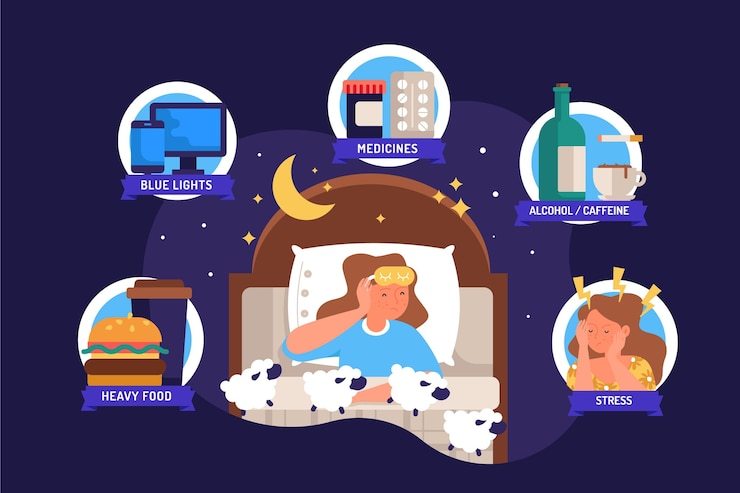
Getting good sleep is vital for your overall health and well-being. It boosts your mood, increases productivity, and helps your body function better. However, understanding the science behind sleep can sometimes feel overwhelming. Sleep involves different stages, and the quality of your rest depends on how much time you spend in each one.
The study of sleep has been around for ages, but in recent years, technology like smartphones and tablets has made people more aware of their sleep patterns. As a result, there’s been a push for more research on improving sleep and the development of sleep-related products to support better habits, even during stressful periods.
Why Do People Struggle With Sleep?
Getting enough sleep each night is crucial for performing well during the day and staying healthy. Poor sleep can weaken your immune system, increase stress, and affect your overall health. Common causes of sleeplessness include insomnia, stress, and anxiety, as well as disrupted sleep cycles or not getting into deep sleep. Additionally, unhealthy lifestyle choices, like a lack of exercise or poor eating habits, can stop you from getting the rest you need.
Easy Ways to Sleep Better
Improving your sleep quality starts with sticking to a consistent sleep schedule. Try to go to bed and wake up at the same time every day. If your mattress is old and no longer providing proper support, replacing it could also make a difference.
Regular exercise can be a game-changer for better sleep. Physical activity helps you relax, reduces stress, and prevents daytime fatigue—all of which can lead to more restful nights.
Tackling Stress for Better Sleep
If restless nights have become your norm, managing stress could be the key to turning things around. Stress is a major contributor to sleep troubles, so finding ways to control it is essential. You might consider practices like meditation, yoga, or even CBD products to promote relaxation.
CBD is often used in edible form, allowing you to enjoy its benefits without the risks associated with smoking. If you’re interested, take the time to explore the various options available. Just remember to use it responsibly to keep stress levels in check without overdoing it.
How Much Sleep Do You Actually Need?
The amount of sleep each person needs varies, but not enough sleep can have serious health consequences. Studies show that sleeping less than six hours a day increases the risk of health issues over time, while getting at least eight hours of sleep is linked to better longevity. If you’re unsure how much sleep you need, you can use tools like sleep calculators to pinpoint the ideal amount for you. Many of these are free to download and easy to use.
Setting a regular sleep schedule and prioritizing good rest is essential for staying energized and focused for the day ahead. Use these tips to help address your sleeplessness and get back to feeling your best.